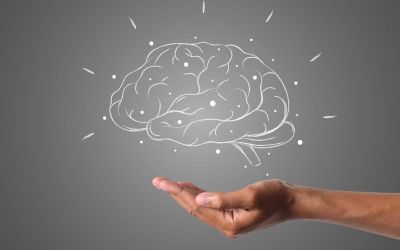
Come riuscire a dormire meglio?
6 consigli e una speciale tecnica per migliorare il sonno
In occasione della Giornata Mondiale del SonnoCos'è il sonno e perché è importante? Il sonno è uno sta... Leggi del 14 marzo, riflettiamo su questo alleato fondamentale per il nostro benessere mentale e fisico. Dormire bene migliora la memoriaLa memoria è una funzione cognitiva fondamentale che consis... Leggi, rafforza il sistema immunitario e riduce il rischio di disturbi neurodegenerativi. Ma come possiamo migliorare la qualità del nostro riposo? Scopri 6 strategie basate sulla ricerca scientifica e una tecnica innovativa per trasformare il sonno in un potente strumento di rigenerazione mentale.
Cosa influenza la qualità del sonno?
Il sonno è un processo biologico cruciale ed è da tempo riconosciuto come un fattore determinante per la salute e le prestazioni umane. Sebbene non tutte le funzioni del sonno siano pienamente comprese, è noto che esso ripristina l’energia, promuove la guarigione, interagisce con il sistema immunitario e ha un impatto concreto sulle funzioni cerebrali e sul comportamento.
La scarsa qualità del sonno può essere definita secondo le raccomandazioni della National Sleep Foundation, in base a:
- tempo totale di sonno
- tempo impiegato a prendere sonno
- veglia dopo l’inizio del sonno
- numero di risvegli superiori a 5 minuti ed efficienza del sonno.
Una bassa qualità è stata associata a stressDal punto di vista clinico, lo stress è una reazione fisiol... Leggi, ansiaL'ansia è una risposta emotiva caratterizzata da sentimenti... Leggi, fumo, consumo di bevande zuccherate, pressioni sul posto di lavoro, preoccupazioni finanziarie, irregolarità degli orari di lavoro, attività fisica, irregolarità del sonno e tempi di pendolarismo.
Inoltre, il sonno è correlato ai disturbi neurodegenerativi in tre modi fondamentali:
- i pazienti affetti da tali disturbi presentano spesso problemi e disturbi del sonno
- i problemi e i disturbi del sonno possono essere fattori di rischio per il successivo sviluppo di disturbi neurodegenerativi
- il sonno può essere correlato alla fisiopatologia di queste condizioni.
Il concetto emergente di “salute del sonno” presenta una visione olistica del sonno, includendo molteplici domini di caratteristiche del sonno, tra cui la regolarità, la vigilanza, i tempi, l’efficienza e la soddisfazione, piuttosto che singoli sintomi e disturbi.
6 consigli per dormire meglio
Come possiamo imparare dalla ricerca scientifica sul cervello per migliorare il nostro sonno? Ecco 6 consigli basati sulle evidenze scientifiche:
- Fai del movimento: l’esercizio fisico, oltre a supportare i processi cognitivi, sollecita la produzione della melatoninaLa melatonina è un ormone prodotto naturalmente dalla ghian... Leggi, uno degli ormoni del sonno, facilitando l’addormentamento. AttenzioneL'attenzione è un processo cognitivo complesso e multidimen... Leggi, però, all’orario, mentre questo effetto si produce con un allenamento mattutino, l’esercizio fatto alla sera può avere un effetto stimolante.
- Mangia in modo equilibrato: sia mangiare troppo che troppo poco può disturbare l’addormentamento. Possibilmente, è meglio mangiare almeno tre ore prima di dormire. Se si ha necessità di mangiare prima del sonno, possiamo consumare un cibo leggero.
- Evita alcool e caffeina: se si fa uno spuntino ravvicinato al sonno, dovremmo evitare di includere alcool e caffeina. Può sembrare che l’alcool porti all’assopimento, ma in realtà complessivamente ha un effetto stimolante che ci tiene svegli.
- Porta attenzione all’ambiente: può influire sulla qualità del sonno. L’ambiente ideale sarebbe un ambiente silenzioso, buio e fresco.
- Inizia un “rituale del sonno”: quando eravamo bambini, forse nostra madre ci leggeva una storia e ci rimboccava le coperte prima di dormire. Si tratta di un rituale confortante che ci aiutava a entrare nel sonno. Anche in età adulta, una serie di rituali per andare a letto può avere un effetto simile. I rituali aiutano a segnalare al corpo e alla mente che sta per arrivare il tempo di dormire. Per questo scopo può esserci utile il punto successivo e soprattutto la tecnica dell’Auto Bene-dizione, che vedremo a breve insieme.
- Rilassati prima del sonno: dopo giornate frenetiche in cui gli ormoni dello stress si sono magari prodotti in abbondanza, è importante dare al nostro corpo l’opportunità di una transizione graduale. Si può usare la meditazione, o altre tecniche, o semplicemente fare qualche respiro profondo e portare l’attenzione dove si sente tensione.
Quindi, in uno stato di rilassamento, dedica qualche momento a bene-dire te stesso il tuo vissuto.
La tecnica dell’Auto Bene-dizione
Ecco una straordinaria tecnica tratta dalla Pedagogia per il Terzo MillennioPedagogia per il Terzo Millennio (PTM) è un metodo interdis... Leggi: l’Auto-benedizione, per rendere il sonno un potente alleato del nostro cervello. La Tecnica dell’Auto-Benedizione, i suoi benefici e il diretto collegamento con il benessere del sonno, qui di seguito presentati, sono estratti dal Percorso “Le 10 Chiavi della ResilienzaSecondo l'American Psychological Association, la resilienza ... Leggi”. La Tecnica, ideata sulla base di nozioni teoriche sul funzionamento ottimale del cervello resiliente, aiuta, chi la applica, a coltivare progettualità e auto-determinazione, anche in periodi di forte stress.
Accogli e trasforma prima di andare a dormire: genera oggi il tuo domani
Poco prima di andare a dormire, siamo particolarmente sensibili e disponibili a trasformare, perché il nostro cervello si prepara alla sua naturale riorganizzazione. Quando non riusciamo a spegnere pensieri e preoccupazioni, questi possono disturbare la qualità del nostro sonno. Spesso ci risvegliamo l’indomani più stanchi e confusi del giorno prima. Se prendiamo un momento per avere cura di noi stessi e “dirci bene” le cose prima di andare a dormire, se costruiamo una narrazione della nostra giornata utile e proattiva, aiuteremo la nostra mente a mettere in ordine pensieri, emozioniLe emozioni sono risposte psicofisiologiche complesse che ci... Leggi ed eventi.
Durante il sonno la nostra mente ripercorre, riprocessa tutto ciò che abbiamo vissuto nel nostro stato di veglia e lo rielabora in modo continuo, senza mai fermarsi. Con l’atto del “dire bene” aiuteremo il nostro cervello a processare le esperienze vissute e a mettere ordine durante la notte, con l’obiettivo di programmarci in modo volontario, orientando le nostre funzioni cerebrali. L’effetto sarà predisporci al rilassamento e ad un senso di sicurezza e di efficacia, importantissimi per accompagnare il nostro riposo notturno e per predisporci con mente lucida e positiva per il giorno successivo.
Questo momento dedicato a te e al tuo benessere, prima di addormentarti, lo definiamo qui “Auto-bene-dirsi”: parlarsi bene, con un giusto ordine. Coltivare quest’attitudine con costanza avrà su di te un effetto positivo generalizzato: imparando a benedire ogni giornata, saprai benedire ogni esperienza, anche quelle più difficili, e infine saprai benedire la tua intera vita.
Trasforma ogni attimo in un’occasione di crescita. Un viaggio interiore per riscoprire benessere, resilienza e nuove possibilità.
"*" indica i campi obbligatori

SCOPRI IL POTERE DELLA GRATITUDINELa gratitudine, un'emozione positiva legata al riconosciment... Leggi
Istruzioni per l’Auto Bene-dizione
Poco prima di addormentarti, la sera, prenditi un momento per te. Ripercorri le scene, le azioni, gli eventi della tua giornata come fossero fotogrammi di una pellicola. Fai ordine e chiarezza nella tua mente attraverso queste azioni di focalizzazione mentale che definiamo ‘auto-benedizione’:
- Innanzitutto, sottolinea a te stesso tutte le cose e le situazioni che hanno funzionato, anche quelle piccole azioni da cui hai avuto piacereIl piacere è un'esperienza soggettiva che descrive una sens... Leggi e benessere. Ricavane quel senso di soddisfazione che ti fa sentire sicuro e capace;
- dopo che hai sottolineato a te stesso le cose che hanno funzionato, mettendo ordine nella mente dei tuoi ricordi, rievoca un episodio in cui non ti sei sentito capace. Guardati agire in quel fotogramma in cui ha sentito che, piuttosto che relazionarti alle cose, agli eventi, alle persone, hai reagito dando una risposta che reputi non adeguata;
- chiediti quali azioni avresti potuto/voluto compiere e costruisci un altro scenario nella tua mente di quell’evento, in cui trasformi la reazione in una interazione, includendo la nuova risposta per quella specifica situazione;
- ora puoi dire a te stesso che sei pronto a rispondere in modo diverso a tutte quelle situazioni simili che incontrerai domani. Sei pronto e disponibile ad imparare ancora;
- adesso puoi costruire l’immagine della giornata successiva: guardati nelle azioni che compirai e associati allo stato che vorrai manifestare. A questo punto sei pronto per addormentarti e lasciare che i naturali processi di rielaborazione della tua mente durante la notte facciano la loro parte.
Impegnati più che puoi in questo esercizio. Se saprai valorizzare all’interno di ogni singola giornata la sua unicità, ti preparerai a quella successiva con un’attitudine aperta e disponibile e sarai sempre meno in balia degli eventi, costruendo e ricostruendo passo dopo passo l’intera tua vita. Sarai così una persona nuova, sempre desiderosa di imparare ancora.
- Ancoli-Israel, S., Klauber, M. R., Jones, D. W., Kripke, D. F., Martin, J., Mason, W., … & Fell, R. (1997). Variations in circadian rhythms of activity, sleep, and light exposure related to dementia in nursing-home patients. Sleep, 20(1), 18-23.
- Buysse, D. J. (2014). Sleep health: can we define it? Does it matter?. Sleep, 37(1), 9-17.
- Critcher, C. R., Dunning, D., & Armor, D. A. (2010). When self-affirmations reduce defensiveness: timing is key. Personality & social psychology bulletin, 36(7), 947–959.
- Falk, E. B., O’Donnell, M. B., Cascio, C. N., Tinney, F., Kang, Y., Lieberman, M. D., Taylor, S. E., An, L., Resnicow, K., & Strecher, V. J. (2015). Self-affirmation alters the brain’s response to health messages and subsequent behavior change.
- Goldstein, A. N., & Walker, M. P. (2014). The role of sleep in emotional brain function. Annual review of clinical psychology, 10, 679–708.
- Hafner, M., Stepanek, M., Taylor, J., Troxel, W. M., & Van Stolk, C. (2017). Why sleep matters—the economic costs of insufficient sleep: a cross-country comparative analysis. Rand health quarterly, 6(4).
- Hale, L., Troxel, W., & Buysse, D. J. (2020). Sleep health: an opportunity for public health to address health equity. Annual review of public health, 41, 81-99.
- Hale, L., Troxel, W., & Buysse, D. J. (2020). Sleep health: an opportunity for public health to address health equity. Annual review of public health, 41, 81-99.
- Harris, P. R., & Epton, T. (2010). The impact of self-affirmation on health-related cognition and health behaviour: Issues and prospects. Social and Personality Psychology Compass, 4 (7). pp. 439-454.
- Imeri, L., & Opp, M. R. (2009). How (and why) the immune system makes us sleep. Nature Reviews Neuroscience, 10(3), 199-210.
- McCurry, S. M., Reynolds III, C. F., Ancoli-Israel, S., Teri, L., & Vitiello, M. V. (2000). Treatment of sleep disturbance in Alzheimer’s disease. Sleep medicine reviews, 4(6), 603-628.
- Ohayon, M., Wickwire, E. M., Hirshkowitz, M., Albert, S. M., Avidan, A., Daly, F. J., … & Vitiello, M. V. (2017). National Sleep Foundation’s sleep quality recommendations: first report. Sleep health, 3(1), 6-19.
- Oliverio Ferraris, A., & Oliverio, A. (2019). Più forti delle avversità. Individui ed organizzazioni resilienti. Torino: Bollati Boringhieri
- Paoletti, P. (2008). Crescere nell’eccellenza, Armando editore
- Paoletti, P. (2018). OMM The One Minute Meditation. Tenero, CH: Medidea.
- Paoletti, P., Di Giuseppe, T., Lillo, C., Anella, S., and Santinelli, A. (2022). Le Dieci Chiavi della Resilienza. Available online at: https://fondazionepatriziopaoletti.org/10-chiavi-resilienza/
- Peter-Derex, L., Yammine, P., Bastuji, H., & Croisile, B. (2015). Sleep and Alzheimer’s disease. Sleep medicine reviews, 19, 29-38.
- Pollak, C. P., Perlick, D., Linsner, J. P., Wenston, J., & Hsieh, F. (1990). Sleep problems in the community elderly as predictors of death and nursing home placement. Journal of community health, 15(2), 123-135.
- Proceedings of the National Academy of Sciences of the United States of America, 112(7), 1977–1982.
- Schwartz, J. R., & Roth, T. (2008). Neurophysiology of sleep and wakefulness: basic science and clinical implications. Current neuropharmacology, 6(4), 367-378.
- Tabibnia, G. (2020). An Affective Neuroscience Model of Boosting Resilience in Adults. Neuroscience & Biobehavioral Reviews, 115, 321-350.
- Tabibnia, G., & Radecki, D. (2018). Resilience training that can change the brain. Consulting Psychology Journal: Practice and Research, 70(1), 59–88.
- Taheri, S. (2006). The link between short sleep duration and obesity: we should recommend more sleep to prevent obesity. Archives of disease in childhood, 91(11), 881-884.
- Vitiello, M. V., & Prinz, P. N. (1989). Alzheimer’s disease: sleep and sleep/wake patterns. Clinics in geriatric medicine, 5(2), 289-299.
Sii parte del cambiamento. Condividere responsabilmente contenuti è un gesto che significa sostenibilità
Alleniamo l'intelligenza emotivaLa prima definizione di Intelligenza Emotiva in quanto tale ... Leggi: che emozione ti suscita questo articolo?










